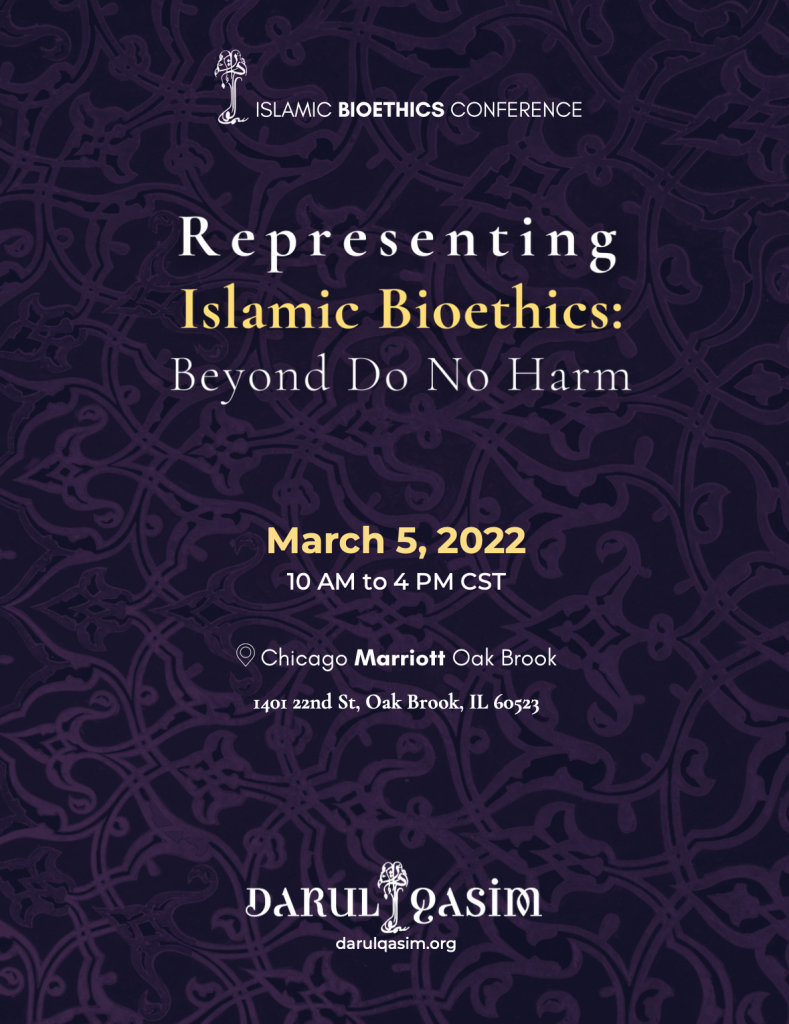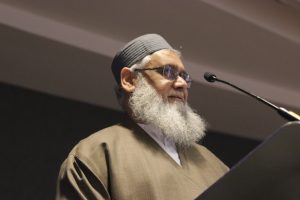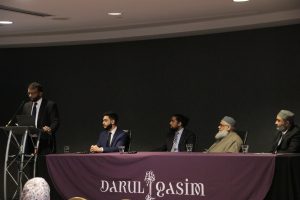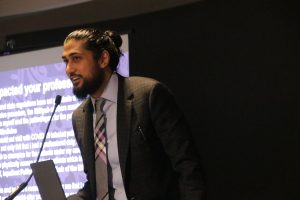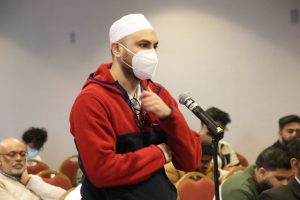On March 5th, 2022, over 80 invited guests that included physicians of an assortment of specialties, graduate students of medicine and bioethics, as well as students of Darul Qasim, attended Darul Qasim’s inaugural Islamic Bioethics Conference entitled: “Representing Islamic Bioethics: Beyond Do No Harm.” The conference organizers, made up of local and out-of-state medical students, created an atmosphere for a robust intellectual discussion steeped in a religious discourse that was not only inspiring, but also set the stage for the clinical implementation of going beyond ‘Do No Harm.’
Dr. Tariq Lateef, an internist and graduate student of bioethics who has dedicated his current time to Islamic Scholarship through Darul Qasim, opened up the conference with a warm welcome and set the stage for a stellar line up of panelists. Dr. Lateef’s welcome was followed by Qurʾānic recitation from soon-to-be medical student Samer Wahood, sharing the verses of healing, Āyāt al-Shifāʾ. The recitation of these ayat gave participants and presenters the impetus to frame their intellectual exchanges using a Quranic lens.
Dr. Omar Hussain, one of Darul Qasim’s bioethics physicians and a Chicagoland pulmonary critical care specialist, was the first to present. His presentation showcased the direct effects of utilizing an Islamic bioethical approach to his practice of medicine.
Following Dr. Hussain’s presentation, participants were honored to hear from the president and director of Darul Qasim, Shaykh Mohammed Amin Kholwadia. Shaykh Amin set the stage for discussing the convergence of ‘doing no harm’ with’ doing no sin’ within the framework of Islamic authority (wilāyah). Shaykh Amin created the Bioethics program at Darul Qasim by bringing together a network of physicians and medical students to meet and discuss vital topics concerning Islamic bioethics under his esteemed tutelage.
This was a segue into the first discussion and case study presented by Dr. Ahsan Arozullah, Darul Qasim bioethics physician and Vice-President of Development Medical Sciences-Oncology at Astellas Pharma Global Development. Discussing the theological approach to gestational surrogacy, Dr. Arozullah opened the floor to discuss the Islamic authority on women’s right to bear children and its theological justification. This was followed by a joint presentation by Dr. Akbar M. Ali, also a Darul Qasim bioethics physician as well as hospitalist of the Northshore Healthcare system, and his mentee, Rafia Ali, second year medical student and organizer of this event. They discussed the history of blood transfusions, the lack of blood transfusions among Muslim scientists of the past, and alternative modern approaches to minimizing blood loss. These approaches lead to reducing the need for blood transfusions, which are not supported by Islamic bioethics.
The final case study, presented by Drs. Umar Shakur and Yasir Akhtar, discussed “A Novel Therapy in Endocarditis Inspired by ‘do no sin’.” Serving on Darul Qasim’s bioethics physician committee, Dr. Shakur and Dr. Akhtar moved the audience with their final presentation that highlighted not only the theoretical discussion of utilizing Islamic bioethics in healthcare, but the implementation of a fascinating novel approach toward treating a neglected population of critically ill patients.
The Darul Qasim Islamic Bioethics Conference was thought provoking and inspirational and opened a door through which Muslim healthcare professionals can focus their efforts on creating halal cures that will benefit universally. Attendees were encouraged to enroll in Darul Qasim’s Bioethics courses and increase their own Islamic learning. Organizers created a document that provides a bibliography of sorts that can be a great place to begin to research the topics discussed (highlighted materials in the document were featured in the conference). Alongside the push to learn more, participants were encouraged to support future plans for a National Islamic Bioethics Conference. Darul Qasim has brilliantly set the stage for a much-needed US based intellectual discourse.

